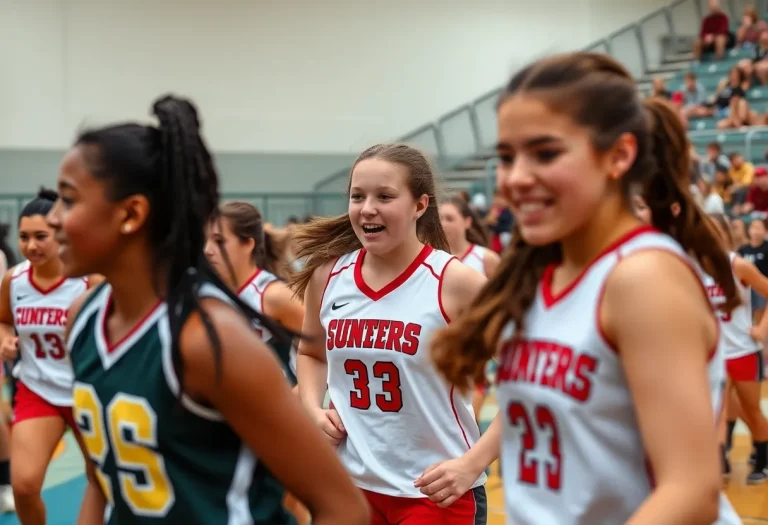News Summary
The federal government is investigating Minnesota over alleged violations of Title IX due to biological male transgender athletes participating in girls’ sports. The inquiry revolves around the performance of a standout transgender athlete and raises concerns about fairness in competition among female athletes. With state education agencies given 10 days to comply with Title IX regulations, the case adds to the ongoing debate surrounding transgender participation in youth sports and might lead to significant legal changes.
Investigation Unfolds in Minnesota Over Transgender Athlete Participation in Girls’ Sports
In a significant turn of events, the federal government is looking closely at the state of Minnesota over allegations that it has violated Title IX regulations. Title IX is the federal civil rights law that prohibits sex-based discrimination in federally funded education programs and activities. The U.S. Department of Education (DOE) and the Department of Health and Human Services (DHHS) have found that Minnesota’s education agencies have allowed biological male transgender athletes to participate in girls’ sports, prompting an investigation that has stirred up quite the stir.
The Genesis of the Investigation
This investigation was sparked by initiatives from the previous Trump administration. It all began as a two-month inquiry focusing particularly on the performance of a standout transgender athlete, Marissa Rothenberger, who made headlines for her impressive skills on the softball field. Leading her girls’ high school team to a state championship, Rothenberger’s statistics from the 2025 season were hard to ignore—she pitched for 35 innings, allowing only two earned runs and striking out 27 female batters.
Raising Eyebrows
Rothenberger’s remarkable performance over five consecutive matches brought the issue into the spotlight, with her overpowering displays leading many to question the fairness of competition among female athletes. While some celebrate her achievements, others argue that her participation poses challenges for cisgender female competitors, creating a debate about competitive advantage.
Focus on Fairness
Craig Trainor, the Acting Assistant Secretary for Civil Rights at the DOE, has put the spotlight on Minnesota’s political leadership for not adequately upholding the principles outlined in Title IX. The crux of the matter revolves around ensuring the safety and fair treatment of female athletes, as various female competitors have raised concerns over their experiences in sports.
Time is Ticking for Compliance
The federal government has given Minnesota agencies a ticking clock—the state has just 10 days to change its policies and come into compliance with Title IX and President Trump’s executive order called “Keeping Men Out of Women’s Sports.” If they fail to make the necessary changes, the state education agencies might be referred to the Department of Justice (DOJ), following a precedent set by actions taken against educational institutions in Maine and California concerning similar issues.
Legal Challenges Ahead
In an intriguing twist to the story, Minnesota Attorney General Keith Ellison has filed a lawsuit against Trump and the DOJ, asserting that the push for such policies is unlawful. Meanwhile, three teenage female athletes who competed against Rothenberger have also sought legal recourse, drawing attention to the fairness of competitive sports.
Emotional Toll on Competitors
Despite Rothenberger’s wizardry on the mound, the opposition has not been silent. One plaintiff expressed noticeable frustration, questioning why the competition against Rothenberger wasn’t halted immediately. Rothenberger’s phenomenal record, including a complete-game shutout in the state championship, is touted as a source of both physical and mental challenges for her competitors. It raises a broader question: at what cost do we want to ensure competitive equality?
Nationwide Impact and Ongoing Debate
This situation in Minnesota is reflective of a larger, ongoing debate across various states, like Idaho, where lawmakers are grappling with how to handle the implications of transgender participation in youth athletics. As discussions continue, the Supreme Court is preparing to address similar cases concerning transgender athletes’ rights. The outcomes of these deliberations could lead to significant changes in national policies and the future landscape of sports.
Conclusion
The unfolding events in Minnesota pose questions that resonate deeply within the community and beyond—balancing the rights of transgender youth and ensuring fair competition for cisgender female athletes remains a charged and complex issue. As Minnesota faces scrutiny and legal challenges, it undoubtedly adds another layer to a debate that shows no signs of slowing down anytime soon.
Deeper Dive: News & Info About This Topic
LIVE BALL Resources
Federal Judge Dismisses Lawsuit Against Transgender Athlete in Minneapolis
Jurupa Valley Volleyball Program Faces Legal Controversy
Three Female Athletes Challenge Transgender Inclusion in Sports
Inclusion of Students with Disabilities in Madison Swim Team
Jurupa Valley Faces Legal Challenge Over Transgender Athlete Inclusion
Legal Battle Erupts Over Transgender Athlete Participation
Controversy Over Transgender Athlete Participation in Jurupa Valley
Minnesota Girls High School Tennis Welcomes Third Class
Transgender Athlete Sues Swarthmore College and NCAA
Jurupa Valley Honors Transgender Athlete Amid National Debate
Additional Resources
- ESPN: Transgender Athlete Debate
- Wikipedia: Transgender Athletes
- Reuters: State Bans and Protection Claims
- Google Search: Title IX Transgender
- K12 Dive: Idaho and West Virginia Case
- Google Scholar: Minnesota Transgender Athletes
- Hollywood Reporter: Hockey Drama and Transgender Athletes
- Encyclopedia Britannica: Transgender Athletes
- KIRO7: National Debate on Transgender Athletes
- Google News: Transgender Athlete Debate


